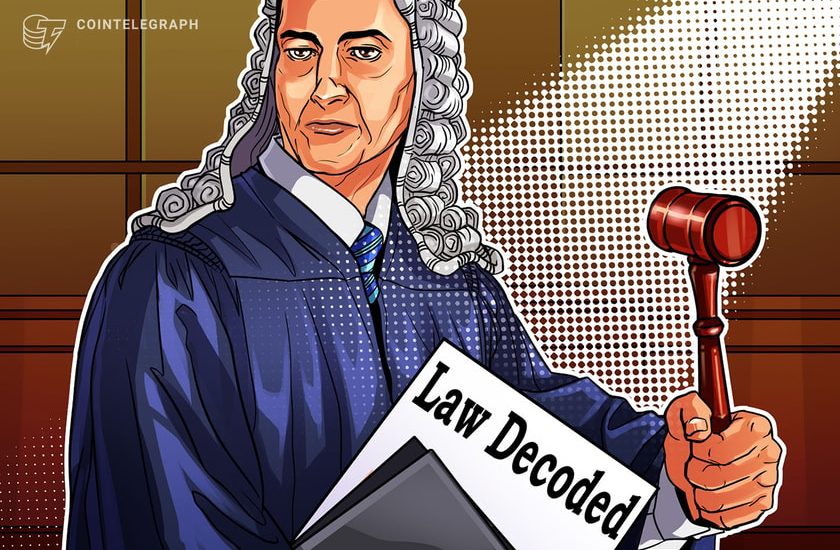- October 9, 2023
- Posted by: admin
- Category: BitCoin, Blockchain, Cryptocurrency, Investments


Crypto lawyers are seemingly divided over the significance of a court order to dismiss the SEC’s motion.
On Oct. 3, United States District Court Judge Analisa Torres rejected the U.S. Securities and Exchange Commission’s (SEC’s) motion to appeal its loss against Ripple Labs, the company behind the XRP (XRP) cryptocurrency. Torres denied the SEC’s motion, claiming the regulator failed to meet the burden to show that there were controlling questions of law or substantial grounds for differences of opinion on the matter.
The regulator appealed against the court’s July decision declaring that retail sales of the XRP token did not meet the legal definition of a security. The SEC argued there was “substantial ground for differences of opinion” on the laws at hand.
Immediately after the SEC’s appeal was rejected, the XRP price surged nearly 6%. However, the decision isn’t an outright loss for the regulator, as Torres scheduled a trial for April 23, 2024, to address the remaining issues in the case.
Crypto lawyers are seemingly divided over the significance of the court order. While many lawyers and commentators chalked the decision up as a substantive win for Ripple in its case against the regulator, other legal experts have urged the public to temper their enthusiasm. Bill Hughes, a lawyer at blockchain firm ConsenSys, told Cointelegraph that the rejection of the SEC’s appeal was something he’d expected, explaining that it’s not typical for such an appeal to make it through during this part of a trial. “The court says that [Torres’] ruling is limited to this case. Frankly, that’s fine for the SEC if they don’t mind one case not telling you very much about the next,” Hughes explained.
Keeping up with the SBF trial
If you are having a hard time keeping up-to-speed with the ongoing Sam Bankman-Fried trial, Cointelegraph has got you covered. Our reporters are on the ground in New York following every day of the trial. And there is much to recap with, from the defense’s insistence on the role of Binance in the FTX’s collapse to in-depth details about how Bankman-Fried’s former crypto empire ended up with an $8 billion hole in customer assets.
Hong Kong forms crypto task force
The Hong Kong Police Force and the Securities and Futures Commission (SFC) have set up a crypto-focused working group to deal with illicit crypto exchange activities. The working group aims to enhance monitoring and the investigation of illegal activities carried out by virtual asset trading platforms, share information on suspicious activities, assess risks of dubious exchanges and collaborate on investigations.
Days before the meeting, 11 people were detained for questioning over their possible role in the JPEX scandal, in which the SFC alleged the firm had been promoting its services in the region without a license.
Canada comes up with the rules for stablecoins
The Canadian Securities Administrators (CSA) has guided exchanges and cryptocurrency issuers on its interim approach to what it calls value-referenced crypto assets, with a particular focus on stablecoins. The CSA reaffirmed that stablecoins “may constitute securities and/or derivatives,” which Canadian crypto exchanges are prohibited from trading. However, if issuers maintain an appropriate reserve of assets with a qualified custodian and crypto exchanges offering stablecoins make “certain information related to governance, operations, and reserve of assets publicly available,” then the CSA could allow those assets to be traded.
U.K. adds 143 crypto companies to its warning list
The United Kingdom’s financial markets regulator, The Financial Conduct Authority (FCA), added 143 crypto exchanges to its warning list of non-authorized firms that customers “should avoid.” Among them were major exchanges, such as Huobi-owned HTX and KuCoin. The warning list doesn’t reveal much apart from the statement, “You should avoid dealing with this firm.” However, failure to comply could result in criminal charges.
